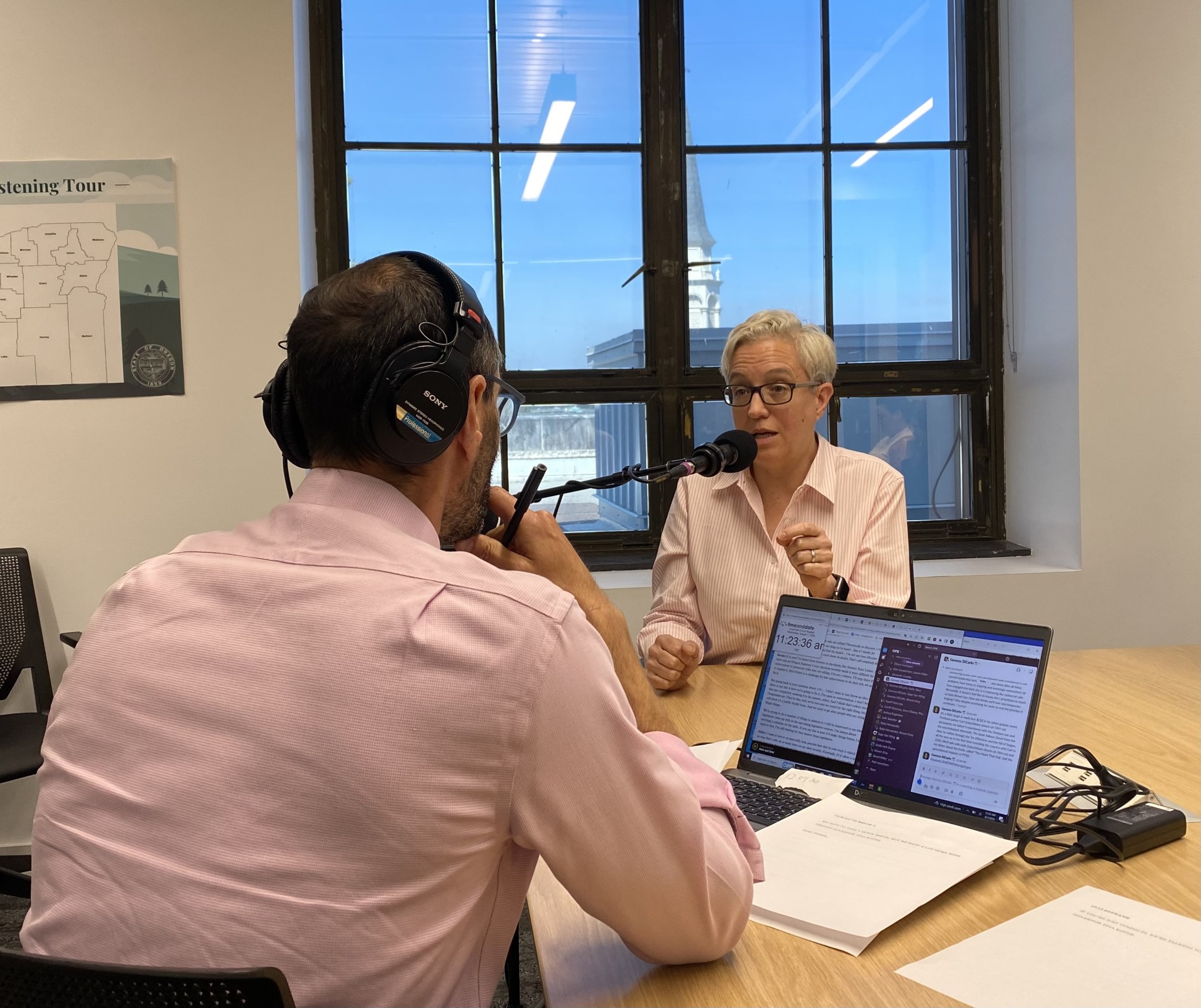
Oregon Gov. Tina Kotek spoke with "Think Out Loud" host Dave Miller on Wednesday, Aug. 7, in Salem, Oregon.
Gemma DiCarlo/OPB / OPB
Over the last 10 months, Oregon Gov. Tina Kotek has finalized the end of the state’s three-year experiment with drug decriminalization, declared a 90-day state of emergency to address the fentanyl overdose crisis in Multnomah County, and faced backlash for the prominent role her wife has played in her administration.
Meanwhile, city leaders and state lawmakers are reckoning with a landmark homelessness ruling from the U.S. Supreme Court that originated in Grants Pass.
OPB’s “Think Out Loud” spent an hour in Salem recently to get an update from the governor on all of those developments and more. Here are excerpts from that conversation, edited for length and clarity.
Should lawmakers update the state’s homeless camping law in light of the Grants Pass v. Johnson ruling?
“I go back to what the law is today in Oregon. The Supreme Court decision was very specific to the Grants Pass case, but we have a law in place that says, ‘Cities, counties, local governments — you have to tell people where they can be.’”
“I think the biggest challenge that we had in the first iteration from the city of Portland is, they weren’t clear for people about where people could be. They just told them all the hundreds of places they couldn’t be. If you’re experiencing unsheltered homelessness, you need to know, ‘Where can I be? And where can I get services?’”
“If it’s not clear, they should go back to the drawing board. But I will say, some cities are doing just fine. They have figured it out… but without court interpretation, perhaps the Legislature has to define that.”
How should counties treat drug possession now that M110 has ended?
“The Legislature listened to Oregonians and made some changes around recriminalization… with the goal of saying, ‘We still don’t want folks’ first stop to be jail. Is there a way to get people into something else – deflect them into treatment and services?”
“Two-thirds, I think, of counties in the state have said, ‘On day one, voluntarily, we will try to set up a deflection program.’ … Not every county will be ready on Sept. 1, because I think they’re being realistic.”
“I think most folks who connect with people with a substance use issue don’t want them to go to jail. That’s what Oregonians have said. So it’s really incumbent upon us to make sure that treatment is available — at least regionally — around the state.”
What role does her wife, Aimee Kotek Wilson, play in her administration?
“What the ethics commission has said here in Oregon is, if a first spouse is a volunteer and has no financial benefit, they can be involved… and she has been a volunteer since day one. There’s been no conflict there.”
“We share the same values and the same interest in helping Oregonians. Whatever she does will be in complete alignment with the priorities that I’ve set based on what voters have asked me to do.”
“I’m like a coach for a team. I want to make sure we have as many players doing whatever they can. The first lady can have a role, and she can add to the things that I’m working on. I think anytime we get more capacity to do stuff, it’s a good thing.”
How has the presidential race changed following Joe Biden’s withdrawal?
“It’s amazing that we have such a qualified vice president in Kamala Harris who can step in and [who] has galvanized people. She’s a unifier; people are excited. Her selection of Gov. Tim Walz from Minnesota is tremendous. I know Tim, I know his wife Gwen — just really down-to-earth people who I think are going to connect with voters across the country. So I think Democrats are in a very good position to win in November.”
You can listen to “Think Out Loud” host Dave Miller’s full conversation with Oregon Gov. Tina Kotek here:




